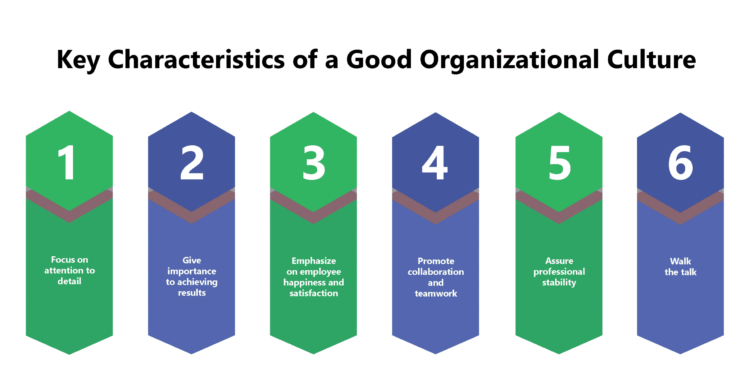Your essential guide to building a strong organisational culture — strategies that embed values, boost engagement, and drive sustained performance.
1. Definition and Importance: Organizational culture is a mix of beliefs, values, and behaviors that create a unique social and psychological environment, influencing productivity, engagement, and growth.
2. Key Characteristics of a Great Culture: Attention to detail, a results-oriented mindset, emphasis on employee happiness and satisfaction, promotion of collaboration and teamwork, assurance of professional stability, and leadership that “walks the talk.”
3. Employee-Centric Practices: Prioritize employee well-being by treating them with dignity, fostering a sense of belonging, and ensuring opportunities for growth and stability.
4. Leadership Role: Leaders must embody and communicate the organization’s values, using consistent and innovative methods to reinforce cultural identity among employees.
Organizations worldwide consider organizational culture one of the most critical contributing factors to consistent business growth. So, we created an essential guide to building a great organizational culture — we hope you find it useful.

It is well-known that every organization is different and boasts a unique workplace culture.
Organizational culture is a combination of underlying beliefs, values, assumptions, and methods of interaction that help create the desired social and psychological environment in an organization.
Simply put, it is the cumulative result of experiences, expectations, philosophies, behaviors, and the workings of individual members and groups in the workforce.
The first step toward building an organizational culture is to understand its linkage to all other aspects of the organization.
Additionally, it is essential that the organization’s culture changes and evolves in tandem with business changes.
However, a few critical characteristics of an excellent organizational culture remain constant.
The most important of these characteristics is as follows:
1. Focus on Attention to Detail
2. Give Importance to Achieving Results
3. Emphasize Employee Happiness and Satisfaction
4. Promote Collaboration and Teamwork
5. Assure Professional Stability
6. Walk the Talk


Organizational culture is based on attention to detail to make employees aware of what is expected of them at work.
Hence, this enables employees better to understand the desired behavior, values, and philosophies.
It shapes how they communicate and interact with their peers and superiors.

A successful organizational culture needs to be result-oriented rather than being focused on structure and process.
It offers employees greater freedom and flexibility to drive desired results and improve overall efficiency.
Such a culture is more successful in a changing business environment than a highly rigid and formal one, as it focuses less on methods and more on outcomes.

A work culture that prioritizes the happiness and satisfaction of employees tends to result in boosting business growth.
Treating all employees with dignity and respect is integral to working in such organizations.
Organizations should value employees for their skills and knowledge, as well as for their unique qualities and aspirations.

Promoting a sense of teamwork among workforce members is another critical characteristic of a good work culture.
It should help foster a deep emotional connection between employees and the organization.
Every member of the workforce should feel like being an equally important member of an extended family.
It will motivate them to improve their performance and make an even more significant contribution to business growth and success.

Every employee within an organization seeks assurance that their career will be more stable.
A work culture that fulfills this basic need of employees boosts their engagement and improves their overall job satisfaction.
Hence. organizations need to base their workplace culture on growth-oriented corporate values.
It paves the way for consistent career growth and guarantees career stability.

Building a great culture requires leaders to establish shared beliefs and values and communicate them effectively to the workforce.
Hence, they must use the proper methods and strategies to reinforce and communicate the values.
Successful organizations have leaders who live their organization’s culture and set the right precedence among employees.
Therefore, organizations should utilize innovative methods to convey their cultural identity to all employees.
Organizational culture can deeply influence critical business metrics such as productivity, employee engagement, and commitment. That is why organizations need to work towards developing a great organizational culture that matches their business values and objectives.
It is an essential guide to building a greater organizational culture.

Lead author: Sagar Chaudhuri, the Co-Founder and CEO of HiFives. He is an HR Tech Evangelist with over 25 years of experience in both corporate and entrepreneurial settings. Previously, Sagar has held leadership roles at companies including Genpact, Infosys, and ICICI Bank. He has an engineering degree from IIT Kharagpur and an MBA from IIM Lucknow. Connect on LinkedIn
To stay updated on the latest HiFives blogs, follow us on Twitter (@MyHiFives)